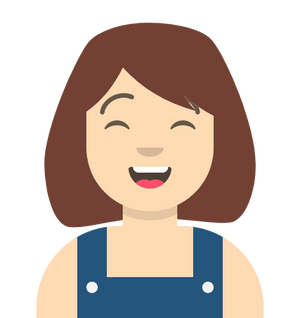
Early Bird vs. Night Owl: Which is Best for You?
“The early bird gets the worm.” Does the night owl get anything? What are early birds and night owls, anyway?
There are two types of people in the world: early birds (aka early risers or morning larks) and night owls. Which one are you? Keep reading to find out which one you are, and to learn more about your sleeping patterns (hint: there are benefits and disadvantages to both).

What is an Early Bird?
You may be an early bird if you:
- Go to bed early and wake up early
- Feel your best when your day begins
- Have less energy later in the afternoon and evening
- Have a hard time staying awake after certain hours

What is a Night Owl?
You may be a night owl if you:
- Stay up late and sleep in
- Feel your best later in the day
- Are most active at night
- Are tired if you wake up early and have problems staying alert in the mornings
These are Your Chronotypes
chron●o●type /noun/
“A person’s natural inclination with regard to the times of day when they prefer to sleep or when they are most alert or energetic.”
Being an early bird or a night owl is your chronotype, and there are some factors that can determine yours. Things like genetics, age, and, in some cases, geographic location can influence your sleeping patterns.
Generally, most children have an early chronotype, which can shift as they grow into adolescence. Once you hit your 20s, your chronotype can shift again to earlier and earlier.
Females tend to have an earlier chronotype than males and this could be simply because of societal factors such as household tasks or career progression. By retirement age, this gap typically disappears.[1]

Early Bird vs. Night Owl: Benefits & Disadvantages
As for which sleep pattern is best for you, there's benefits and disadvantages to both. As long as you're getting enough sleep and it isn't interfering with you life, you can be either an early bird or night owl.
If you feel like your sleep pattern is hindering your life or you're not getting enough sleep, talk with your healthcare profession.
Now, let's dive into the pros and cons:
Benefits of Being an Early Bird
Since early birds are most productive in the early hours of the day, they typically excel in terms of school and work. They also may be more likely to get enough exercise.
A study found that early birds tend to feel happier than night owls. This may be because society accommodates early birds’ lifestyles better rather than night owls.[2]
Disadvantages of Being an Early Bird
Since early birds go to bed early, evening social activities, and pursuing and maintaining relationships may be troublesome for them. You’ll probably find your early bird friends leaving gatherings at a certain time, that is if they show at all, in order to maintain their sleeping pattern.
Benefits of Being a Night Owl
While society typically stereotypes night owls as lazy, it may be quite the opposite. One study found that night owls were more mentally alert than early birds. Another study found that they also tend to have higher IQs.[3]
Disadvantages of Being a Night Owl
However, on the flip side of things, since society is structured around a daytime schedule, night owls may have a harder time adjusting to a fixed schedule or keeping a traditional job.
Another main concern in night owls is mental health. One study found that they may face an increased risk of mental health conditions and metabolic concerns.[4]

Can You Change Your Sleep Pattern?
The short answer: not exactly. One study found that we may eventually have more control over our sleep patterns, but there isn’t a magic fix to do so.[5] Overall, it can be a difficult transition and requires some patience seeing as the key is making changes in increments.
If you’re looking to try to change your sleep patterns, check out these tips:
Tips
- Stick to the same sleep schedule every single night
- Eat balanced, regular meals
- Get out and soak up the sunshine during the day
- Talk with your healthcare provider or a sleep specialist about trying melatonin to help you go to bed earlier
- Improve your sleep hygiene
- Minimize screen time at night
- Avoid alcohol and caffeine at night
- Have an accountability partner

No Matter Your Sleep Pattern - You Deserve the Best Sleep Possible
If you’re trying to change up your sleep patterns, or just want to get quality sleep no matter when you go to bed, your bedroom needs to be set up for success. Click here to check out Cosy House and all of our bedroom essentials. From luxury bedding to high-quality pillows, Cosy House has you covered.
We've gone ahead & enclosed a 10% off coupon below for you to use if you'd like to take the plunge and try out our sheets for yourself! To shop our collection & get 10% OFF Use the code 'BLOG10' at checkout.
Resources:
- Pacheco, D. (2023, March 2). Chronotypes: Definition, types, & effect on sleep. Sleep Foundation. Retrieved March 29, 2023, from https://www.sleepfoundation.org/how-sleep-works/chronotypes
- Biss, R. K., & Hasher, L. (2012). Happy as a lark: Morning-type younger and older adults are higher in positive affect. Emotion, 12(3), 437–441. https://doi.org/10.1037/a0027071
- Roberts, R. D., & Kyllonen, P. C. (1999). Morningness–Eveningness and intelligence: Early to bed, early to rise will likely make you anything but wise! Personality and Individual Differences, 27(6), 1123–1133. https://doi.org/10.1016/s0191-8869(99)00054-9
- Jones, S.E., Lane, J.M., Wood, A.R. et al. Genome-wide association analyses of chronotype in 697,828 individuals provides insights into circadian rhythms. Nat Commun 10, 343 (2019). https://doi.org/10.1038/s41467-018-08259-7
- Lidan Sun, Ang Dong, Christopher Griffin, and Rongling Wu , "Statistical mechanics of clock gene networks underlying circadian rhythms", Applied Physics Reviews 8, 021313 (2021) https://doi.org/10.1063/5.0029993



